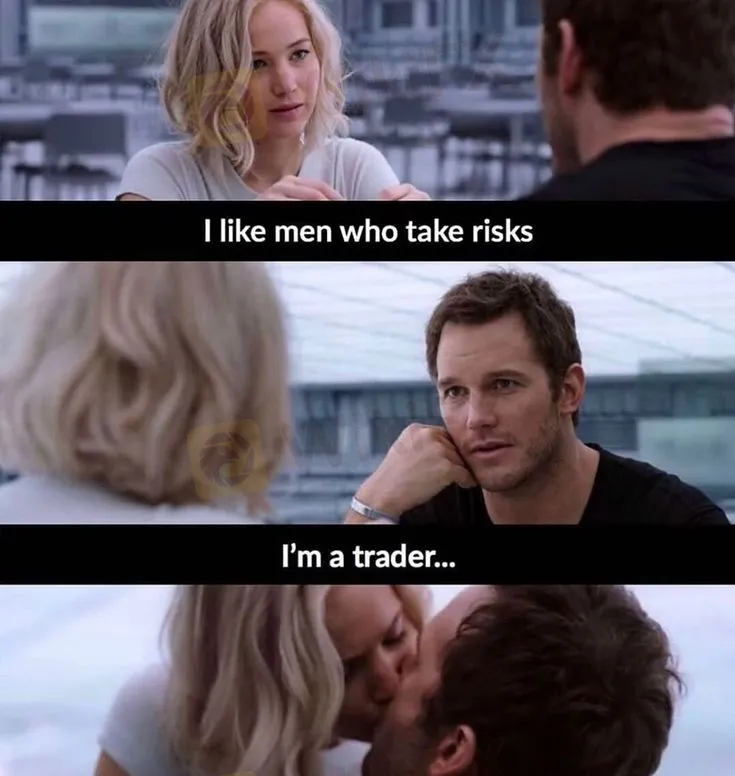简体中文
繁體中文
English
Pусский
日本語
ภาษาไทย
Tiếng Việt
Bahasa Indonesia
Español
हिन्दी
Filippiiniläinen
Français
Deutsch
Português
Türkçe
한국어
العربية
Avoid These Trader Blunders (Part 1)
Abstract:You need to know that just like many other businesses that promise great profit potential, the forex trading business also requires time and patience to gain the success. This is probably why not too many beginners can really master the forex trading business on the first try. Besides, there are some factors that make your trading fail.

Fear is a natural reaction that we show to a threat that can harm us. In fact, this fear is also considered as an important thing for our survival. Without fear, it will be difficult for us to see the danger and avoid danger.
On the other hand, that fear can be a dangerous thing, especially if the cause of that fear pushes us to make an irrational, and unreasonable decision.
Instead of motivating traders to trade without emotion, fear often triggers traders to stay away from trading. Moreover, fear also ultimately triggers traders to blame all the analysis and the time they have spent searching for entry opportunities. Worse yet, this often leads traders to the more adverse trading side.
Another type of fear is the fear of missing out on good entry opportunities. It often makes traders open positions at any price, and without waiting for profitable trading opportunities. A trader who has fear like this also often neglects to trade rationally and is more concerned with his ego.
The last type of fear, and even more dangerous, is fear of loss. This fear will cause the trader to psychologically fear, and give a horrible picture of trading even before making a trading decision.
Greed
Did you know that greed in forex trading is something more dangerous than fear? This happens because greed is a selfish emotion that drives you to always want huge profits when trading. According to FX Street, greed is often considered the most dangerous emotion for traders.
Although profit is the ultimate goal of a trader, the profit to be achieved certainly must be rational. In the end, if a trader prefers greed in trading, then it can become a double-edged sword that can destroy his trading account at any time.

Disclaimer:
The views in this article only represent the author's personal views, and do not constitute investment advice on this platform. This platform does not guarantee the accuracy, completeness and timeliness of the information in the article, and will not be liable for any loss caused by the use of or reliance on the information in the article.
Read more

The Hidden Checklist: Five Unconventional Steps to Vet Your Broker
Forex broker scams continue to evolve, employing new tactics to appear credible and mislead unsuspecting traders. Identifying these fraudulent schemes requires vigilance and strategies beyond the usual advice. Here are five effective methods to help traders assess the legitimacy of a forex broker and avoid potential pitfalls.

Doo Financial Obtains Licenses in BVI and Cayman Islands
Doo Financial, a subsidiary of Singapore-based Doo Group, has expanded its regulatory footprint by securing new offshore licenses from the British Virgin Islands Financial Services Commission (BVI FSC) and the Cayman Islands Monetary Authority (CIMA).

CFI’s New Initiative Aims to Promote Transparency in Trading
A new programme has been launched by CFI to address the growing need for transparency and awareness in online trading. Named “Trading Transparency+: Empowering Awareness and Clarity in Trading,” the initiative seeks to combat misinformation and equip individuals with resources to evaluate whether trading aligns with their financial goals and circumstances.

Malaysian-Thai Fraud Syndicate Dismantled, Millions in Losses Reported
The Royal Malaysia Police (PDRM) has received 26 reports concerning the Nicshare and CommonApps investment schemes, both linked to a major fraudulent syndicate led by a Malaysian citizen. The syndicate’s activities came to light following the arrest of its leader by Thai authorities on 16 December.
WikiFX Broker
Latest News
ASIC Sues Binance Australia Derivatives for Misclassifying Retail Clients
WikiFX Review: Is FxPro Reliable?
Malaysian-Thai Fraud Syndicate Dismantled, Millions in Losses Reported
Trading frauds topped the list of scams in India- Report Reveals
AIMS Broker Review
The Hidden Checklist: Five Unconventional Steps to Vet Your Broker
YAMARKETS' Jingle Bells Christmas Offer!
WikiFX Review: Something You Need to Know About Markets4you
Revolut Leads UK Neobanks in the Digital Banking Revolution
Fusion Markets: Safe Choice or Scam to Avoid?
Currency Calculator


